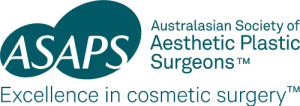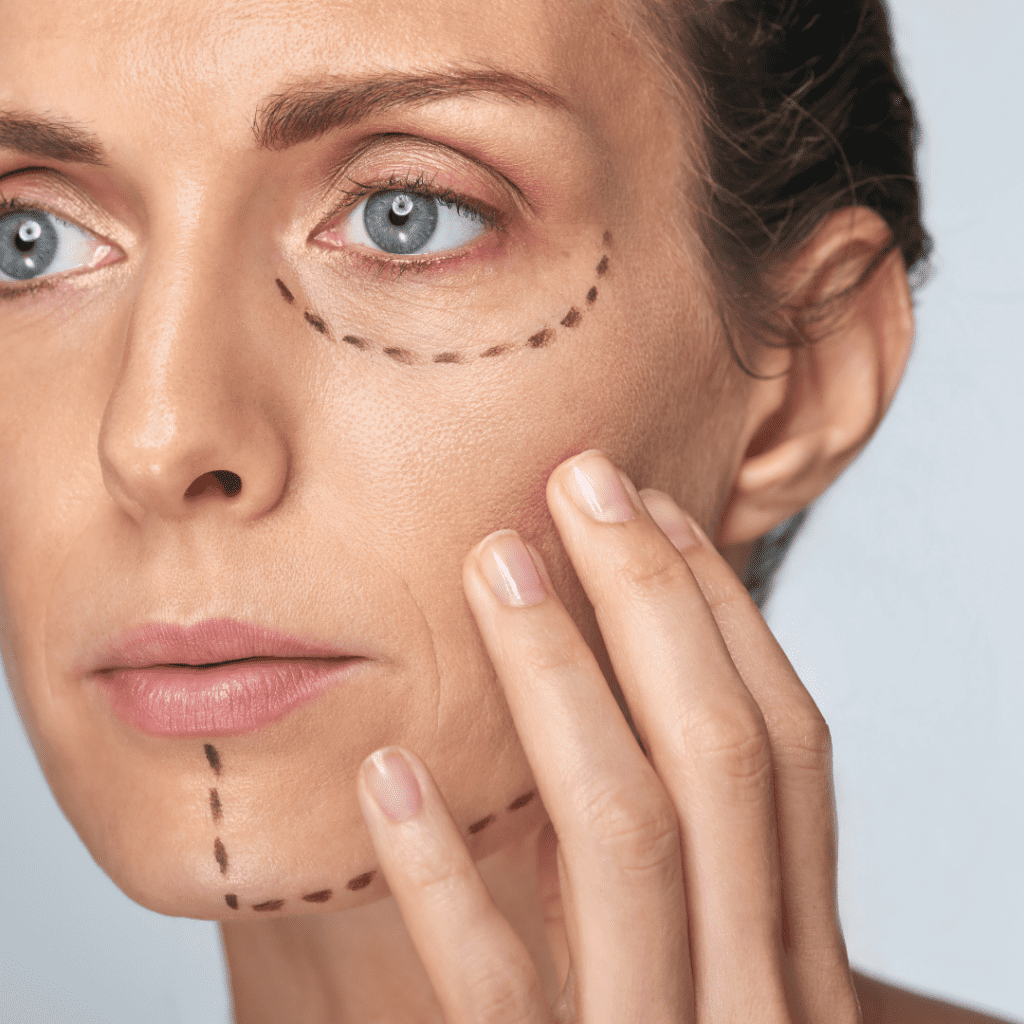On Thursday, 6th May, ASAPS President Dr Rob Sheen was interviewed once again on radio station 2GB about our ‘Know the Difference’ campaign to educate consumers on researching and spotting the difference between registered qualified surgeons and those who pretend to be surgeons.
You can listen to the podcast here or read the transcript of that interview: ‘Nights with John Stanley’ below.
John Stanley:
Now, Paul, I think anyone looking at you and I would probably assume that we haven’t had plastic surgery, or any work done. Would that be right?
Paul:
Oh no, not at all.
John Stanley:
I think if we go back, how many years would it be, when people started having work done, you can often spot it, can’t you? And it’s got better and better. But for decades it’s been done. It’s not just done for cosmetic purposes. People do it for different reasons.
They want to feel more comfortable with who they are. In fact, there is a medical purpose. If people feel like they want to look better, there’s nothing wrong with that at all. But the Australasian Society of Aesthetic Plastic Surgeons… Now there’s a reason I mentioned specifically that group, because there’s been this argument over the extent to which you need to be qualified to do this.
John Stanley:
And we’ve had this conversation with them before, about registered and unregistered surgeons. Rob Sheen is the President of this Australasian Society of Aesthetic Plastic Surgeons. He’s on the line with us now. Rob, good evening to you.
Dr Rob Sheen:
Good evening, John.
Paul:
Good evening, Rob.
John Stanley:
When we talk aesthetic plastic surgeons or cosmetic surgery, what does it cover?
Dr Rob Sheen:
So, this is a very, very important topic to cover, John. Plastic surgeons are specialist surgeons who have been trained by the Royal Australasian College of Surgeons (RACS), and they’re recognised by the government as specialist medical practitioners.
Plastic surgeons provide a big range of surgical services, from reconstructive surgery, cancer surgery, burn surgery, treating children who have congenital problems that they’re born with, like cleft lip, cleft palate. But we also treat people with cosmetic problems.
And what we do is we draw on our broad surgical experience to try and get people to look as normal as possible, and this is what most people want from their cosmetic surgery. They feel that maybe they just don’t look normal. They don’t fit in. They’re self-conscious about some aspect of their appearance, and what most people want out of that is to just look normal.
John Stanley:
Okay. All right.
Dr Rob Sheen:
So we can draw on our broad surgical experience to help patients achieve those goals.
John Stanley:
Now, your concern, and we’ve talked about this before, you’ve got people calling themselves “cosmetic surgeons”, and they’re not registered plastic surgeons. How does that work?
Dr Rob Sheen:
So what happens is the term “cosmetic surgery” is not a recognised specialty by the medical regulator. So what non-trained doctors have been doing, they say, “Well, we can go out and practise cosmetic surgery by calling ourselves cosmetic surgeons.” But it’s a made up term, because there’s actually no such thing as a cosmetic surgeon.
The problem is, John, patients go along and they see the sign ‘Cosmetic Surgeon’, they look it up on the internet and they think that this doctor is a registered specialist in cosmetic surgery. No such specialty exists. So what this made up title does is, it allows practitioners who have no specialist qualifications at all, to hide behind this, and it fools patients, or tricks patients, or deceive patients into thinking that they’re seeing a specialist medical practitioner.
John Stanley:
But are they offering a cheaper service than you? Is that part of the appeal?
Dr Rob Sheen:
Not necessarily, no, but their marketing is usually very, very aggressive, in your face. They’re very good at things like social media and internet marketing.
And what they often do is they promote their services as a lifestyle choice. Now, what we’re saying is you’re going in to have an operation. That is a major decision for you to make in your life. That’s not the sort of decision you should just make thinking you’re getting some new clothes, or something like that.
This is a serious intervention. It has serious implications for your health. That’s one of the main reasons why you need to see a specialist medical practitioner, who can advise you into what they believe is going to be in your long-term health impacts.
John Stanley:
Yeah. So Rob, you’ve talked about this for a while now, so what do you want done? What could be done?
Dr Rob Sheen:
Well, what we believe needs to be done is that the medical regulator, which is known as AHPRA, needs to step up to the plate and say, “These people, these non-specialists who call themselves cosmetic surgeons, need to stop doing it.” The regulator needs to send a very clear message to these practitioners, that if you do continue calling yourselves cosmetic surgeons, you’re in breach of the national law, which all health professionals are bound by. And the regulator has the power to stop you and to prosecute you, if you continue with that sort of behaviour.
John Stanley:
All right. Well, let’s see how that goes, because I wanted you to get that message out.
Paul and I, we’re certainly supporters of what you’re saying there, but understandably, we’ve also got a fascination with what you do, everyone does. I imagine when you say what you do, people immediately go, wow.
Dr Rob Sheen:
Yeah, I understand that, yes.
John Stanley:
It has changed, hasn’t it, from decades ago when it was not as sophisticated as it is today?
Dr Rob Sheen:
Well, what we’re trying to do these days, is give people a natural look, and the real reason is most people want to look normal. They don’t want to look like they’ve had an operation. They want to look normal. They also want minimum downtime. So we’re using a lot more techniques, using injectable things. We’re using lasers, we’re using a whole mode of other treatments, in order to make things more effective for people, but also safer for people.
So all of our members use specialists anaesthetists to do their work, and anaesthesia has just changed dramatically over the last 20 years. In the old days, people would be sick for days after anaesthetics. Now with modern anaesthetics, they’re a lot safer. You recover a lot quicker. You can get back to your normal life. You can get back to work, back to school, back to your family, those sorts of things.
We’re also trying to be a lot more subtle in what we do with people, because people don’t want to look like they’ve had an operation. They want to look and feel natural, and that’s very often the Australian way of life as well. People want to be outdoors, look healthy. Don’t want to look like they’re tampered with excessively.
Paul:
Yeah. Rob, if I could just get in there. I have a friend who has a surgery here in Sydney, and he does cosmetic surgery, if we’re going to call it that. I sat down to dinner with him one night, and he started on getting his degree to be able to do what he does, when he was 21 or 22, at university, and he finished when he was 36 or 37. It took him all that time to get one degree after another, after another, to become a proper, if I could say it, cosmetic surgeon, and he’s extremely successful, but he’s a professional person. He’s not a fraud. He’s not a fly-by-night. He’s not someone with a two-year degree or anything like that. But I might add that I would imagine that he’d be quite expensive.
Dr Rob Sheen:
I don’t know your friend, Paul, but I would assume from what you’ve told me, he is a registered specialist.
Paul:
Absolutely. One of the best in Sydney.
Dr Rob Sheen:
And that is really, really important because that is a signal to patients, that your friend has gone through an accredited training process. But not only that, your friend has made a commitment to stay up to date throughout his professional life. In other words, he hasn’t learned a few things back in medical school, and that was it.
John Stanley:
Yeah.
Dr Rob Sheen:
I’m going to make a commitment to be the best doctor I can, throughout my professional life.
Paul:
Yeah, and he’s recognised as one of the best.
Dr Rob Sheen:
Yeah, exactly.
John Stanley:
Can I ask you, what about if someone comes in… And I know most of the work you’re doing, as you say, is helping people, and a lot of this is corrective surgery, when something’s gone wrong. But also if someone says, “Look, I’ve got a lot of lines here or my neck’s sagging a bit.” Are there situations where you can say, “I actually think you look fine,” or do you do it because that’s what they want. How does that work?
Dr Rob Sheen:
That is a really important question, John. So the idea of seeing a doctor is not to go to see the doctor to get done what you want done. You go and see a doctor to get medical advice.
John Stanley:
Right. Okay.
Dr Rob Sheen:
Now, if we believe that a person cannot be improved with surgery, or doesn’t need surgery, we are ethically bound to tell them so, and advise them of that. The worst thing you can do to someone is inflict an operation or any form of treatment when they need it.
John Stanley:
Yeah. That answers the question then, doesn’t it really?
Dr Rob Sheen:
Particularly when you believe they don’t need it, you have an ethical duty to tell them that.
John Stanley:
Okay. All right.
Dr Rob Sheen:
This is what distinguishes a professional. Taking the patient’s interest is the major priority in what you do.
Paul:
We see these shows on television, Rob, usually late at night and not recommended viewing, not in my opinion. And some of the people that go to see the two professionals who are in front of the camera, and with the jobs that they’ve had done to them, it makes it almost impossible to believe that someone could go in there, like a teenager or a young lady or something, with a fault, a problem, and they say that they can fix it. Then they walk out virtually crippled for the rest of their lives. It makes you wonder how they’re allowed to practise.
Dr Rob Sheen:
So, it comes down to two important points. The first is the community have an expectation that when they see a medical practitioner, that medical practitioner will behave ethically. And that’s really, really important. If you can’t trust your doctor, there’s a significant problem in the healthcare system.
Now, the other arm to that is the government and the medical regulator have an obligation, a duty of care to protect the public. And when this thing is happening under their noses, and they’re doing nothing, we believe that that is an irresponsible way to regulate medicine in this country.
So again, we’re asking the regulators to step up to the mark, realise there’s a problem, and do something tangible to fix that.
John Stanley:
All right, Rob, we’ve got that message out again. We’ll keep in touch with you and see how that’s going.
Thanks, Rob.
Dr Rob Sheen:
Thanks very much, guys. I really appreciate the time.

